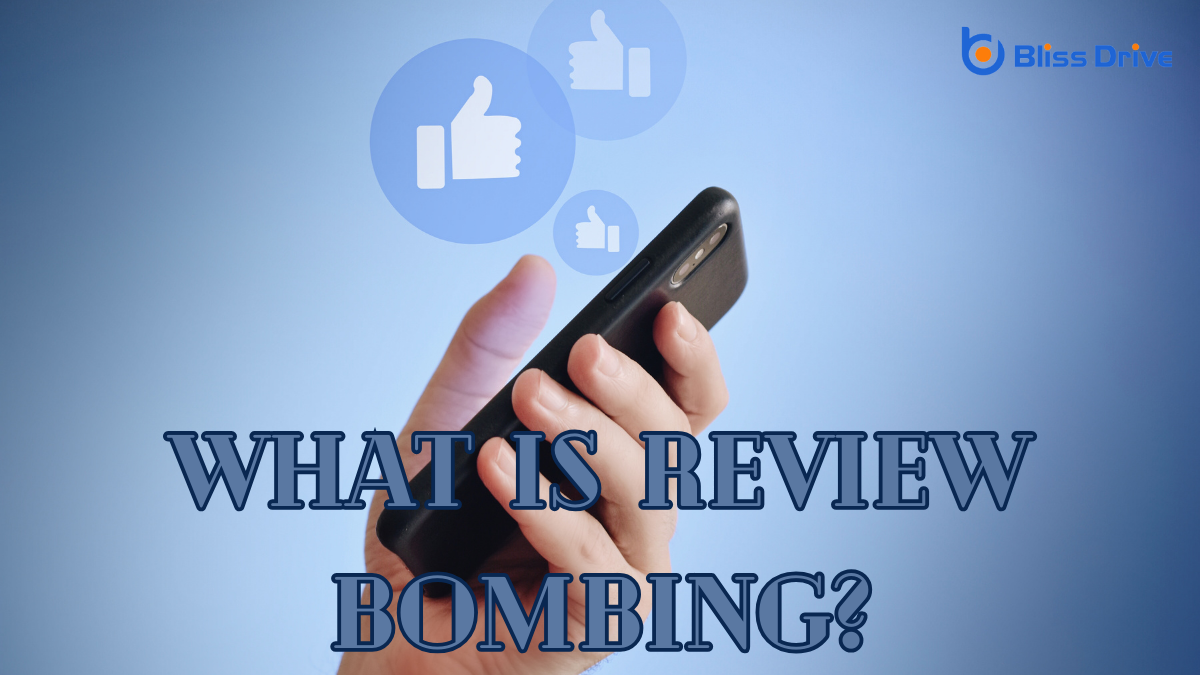Learn More About Us

I've noticed that the term "review bombing" has been popping up frequently in conversations about online reviews. It's a fascinating phenomenon where large groups of people flood a product's review section with negative ratings. These aren't always based on the product's actual quality but often stem from broader grievances, like company policies or social issues. This tactic can skew perceptions and cause real harm, but there's more to uncover about its true implications.
Review bombing didn’t just appear overnight; it evolved from early online feedback systems where user reviews became a powerful tool.
I remember when platforms first allowed us to share our opinions publicly. It felt revolutionary. We could influence others’ choices, and companies started to care about our feedback. Initially, this was a force for good, helping improve products based on honest input.
However, as more people recognized the impact of these reviews, the potential for misuse grew.
Over time, groups discovered they could collectively alter a product's reputation by flooding it with negative reviews. What started as isolated incidents slowly snowballed into a widespread phenomenon.
It's fascinating how something meant for constructive criticism transformed into a weaponized tactic, showing the dual nature of digital spaces.

When I think about how review bombing works, I see it as a coordinated effort where groups flood a product's review section with negative feedback.
This can drastically skew ratings, making it hard for genuine reviews to be heard.
Although it may seem like a spontaneous backlash, coordinated negative campaigns, commonly known as review bombing, are often meticulously planned and executed.
I've seen how groups organize these attacks on forums and social media, rallying participants to flood a product or service with negative reviews. It's not just a few disgruntled customers; it's a concerted effort to sway public perception.
Participants might feel strongly about an issue or simply want to disrupt a brand or creator's reputation. The anonymity of online platforms makes it easy for these campaigns to gain momentum.
When examining these instances, I notice the dedication of participants to their cause, often using shared tactics and timing to maximize impact.
It’s a calculated and strategic approach.
While orchestrated campaigns might seem intimidating, the real impact of review bombing is most evident in how it skews ratings systems.
When a flood of negative reviews hits suddenly, it can drag down the overall score of a movie, game, or product. This distorted rating doesn’t always reflect the true quality, but rather the agenda of those behind the review bomb.
It’s not just about lowering a score; it’s about manipulating perception. I’ve seen how potential consumers rely heavily on these ratings for decision-making. When they’re distorted, it leads to misguided judgments.
It’s vital for platforms to develop methods to identify and mitigate these attacks. Otherwise, the integrity of the ratings system, which many trust, becomes compromised.
I've noticed that review bombing greatly impacts both gaming platforms and online retailers.
On gaming platforms, a flood of negative reviews can distort a game's true reception, affecting sales and player engagementThe interactions that users have with a brand’s content on social media..
Similarly, online retailers face challenges as review bombs can mislead potential buyers and undermine the credibility of their review systems.
Review bombing has left a significant mark on gaming platforms, disrupting how players and developers interact.
I've noticed that when users flood a game's review section with negative feedback, it can skew perceptions and affect sales. This can be frustrating for developers who’ve worked hard on their games, only to see their ratings plummet due to issues unrelated to gameplay.
Players also suffer as they might miss out on great games overshadowed by these mass attacks. Platforms like Steam have tried to counteract this by flagging unusual review activity, but it's not always foolproof.
As a gamer, I rely on honest reviews to guide my purchases. The impact of review bombing complicates this, making it harder to trust ratings and reviews.
Despite efforts to maintain integrity, online retailers face significant challenges with review bombing, which can skew consumer perceptions and unfairly impact sales.
When I shop online, I rely heavily on reviews to make informed decisions. However, when products are targeted by coordinated negative reviews, it becomes difficult to discern genuine feedback from manipulated opinions. This practice doesn’t just affect my buying choices; it undermines trust in the platform itself.
Platforms like Amazon, eBay, and others constantly battle this issue. They implement algorithms and review verification processes, but these aren’t foolproof.
Review bombing can hurt reputable sellers and inflate poor-quality products with undue attention. As customers, we must stay vigilant, cross-check reviews, and understand that not every rating reflects true product quality.
While diving into the motivations behind review bombing, it becomes clear that they're often as varied as they are complex.
People might engage in this practice due to dissatisfaction with a product, service, or even a company’s policies. Sometimes, it's a form of protest against perceived injustices or controversial decisions.
I've noticed that some join in simply because they want to be part of a larger movement or community effort. Others may feel their voices aren't heard through traditional feedback channels and see review bombing as a way to amplify their grievances.
It’s a multi-faceted issue, and each instance can have its own unique set of reasons. Understanding these motivations helps us grasp why review bombing continues to be a prevalent phenomenon.

When I think about the impact of review bombing, the first things that come to mind are revenue losses and damage to a business's reputation.
It doesn't take long for negative reviews to erode trust, leaving creators and companies scrambling to regain their footing.
Have you ever considered how a flood of bad reviews could affect your favorite brand or artist?
Review bombing can seriously impact businesses and creators, leading to significant revenue losses and damage to their reputation.
When negative reviews flood in, potential customers might hesitate to purchase a product or support a creator. Imagine launching something you’ve poured your heart into, only for it to be buried under a barrage of unfair reviews. The financial repercussions can be devastating.
Here’s how:
Understanding this impact is essential for anyone maneuvering today’s digital marketplace, where perceptions can swiftly influence financial outcomes.
Beyond the immediate financial consequences, the impact of review bombing extends deeply into a business's or creator's reputation and trustworthiness.
When a barrage of negative reviews hits, potential customers or fans might question the quality or reliability of a product or content. I’ve seen businesses struggle as their reputations take a hit, not from genuine feedback, but from coordinated attacks.
This erosion of trust can be devastating. Imagine pouring your heart into your work, only for it to be overshadowed by unfair negativity.
It’s tough to regain trust once lost, and future customers may hesitate, wary of making a purchase or engaging with the content.
It’s essential to address review bombing promptly to protect and rebuild the trust painstakingly earned.
How do consumers really feel about review bombing? It’s a mixed bag. On one hand, I see it as a way for people to voice their dissatisfaction en masse. On the other, it can feel overwhelming and unfair, especially when the reasons behind it seem unrelated to the actual product or service.
Here's what stands out to me:
Understanding these perspectives helps us see why review bombing can be such a contentious issue among consumers.
While consumers offerThe specific product or service being promoted by affiliates. diverse views on review bombing, it's important to contemplate the ethical implications tied to this practice. When I think about it, the core issue is fairness.
Review bombing can distort a product's reputation, impacting creators and businesses. Is it fair to judge a product based on unrelated grievances? This practice can drown out genuine feedback, making it tough for potential buyers to get accurate insights.
Moreover, there's the question of accountability. Anonymity online often leads to exaggerated or untrue claims. Shouldn't we aim for honesty and transparency?
As a consumer, I believe we hold a responsibility to express our opinions thoughtfully. We should consider if review bombing is the best way to voice dissatisfaction or if there are more constructive avenues.

When we explore the world of review bombing, several high-profile incidents come to mind, shedding light on its impact.
These cases highlight how collective online actions can influence perceptions and even alter the success of creative works. Let me share a few examples that stand out:
These incidents reveal review bombing's complex dynamics and its profound effects.
Understanding the impact of review bombing on creative works, it's clear that platforms must take action to mitigate these effects.
I've noticed that many platforms are implementing systems to detect and challenge review bombing. For instance, some sites use algorithms to identify unusual spikes in reviews, flagging them for further inspection. Others pause new reviews temporarily, allowing time to assess whether feedback is genuine.
Additionally, platforms encourage users to provide more detailed reviews, making it harder for insincere feedback to slip through unnoticed. I've also seen some sites offer tools for creators to respond directly to reviews, fostering transparency and dialogue.
While these solutions aren't foolproof, they're steps in the right direction to protect the integrity of user-generated content.
How can we, as consumers, make informed decisions when confronted with review-bombed content? It starts with a bit of detective work.
Recognizing legitimate feedback amidst a flood of negativity can be tricky, but it's essential. Here’s how I approach it:
In understanding review bombing, I've realized it's a double-edged sword. While it can amplify consumer voices, it also skews perceptions, causing harm to businesses and creators. Ethical concerns arise, questioning the fairness of such actions. Platforms are trying to tackle this, but as consumers, we need to stay vigilant. Let's critically assess reviews and support genuine feedback. After all, our collective responsibility can shape a fairer online environment for everyone.
